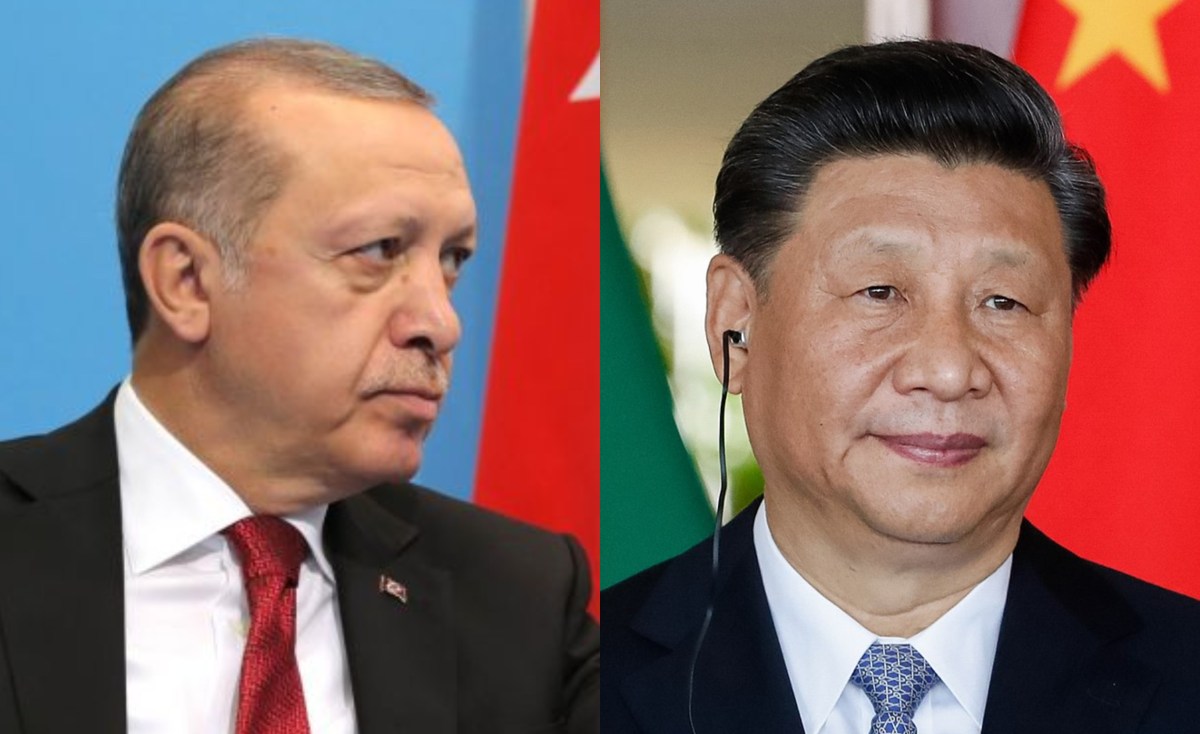Last week, China ratified an extradition treaty with Turkey and if Ankara follows suit the pact will become law, potentially putting thousands of Uyghurs living in Turkey at risk. China has pursued an aggressive worldwide campaign to sign such agreements as part of extraterritorial legal and extra-legal arrangements that weaken international human rights norms.
When I first travelled to Turkey a decade ago it was to research the Uyghur diaspora in Istanbul. While Uyghurs, as Central Asian Turks, have an ancient history of trade and settlement in the region of modern-day Turkey, in the 20th century Turkey became a safe haven for Uyghurs fleeing Chinese persecution.
In August 1949, a plane carrying Uyghur leaders who had been invited to discuss independence with Mao Zedong crashed. Their deaths were kept secret until months after the People’s Liberation Army had fully occupied the region of Xinjiang, known as East Turkestan by Uyghur advocates. Thousands of Uyghur refugees escaped China into neighbouring countries.
By 1952, Turkey had accepted some 2,000 Uyghur refugees into central Turkey. A decade later a sizeable community had formed in Istanbul, setting up foundations in support of succeeding waves of refugees and as an early base for international advocacy.
In 1995, as mayor of Istanbul, the man who is now Turkish President, Recep Tayyip Erdogan, publicly honoured the legacy of Isa Yusuf Alptekin, who had led the first Uyghur diaspora out of China, by naming a section of a park near the Blue Mosque after him. China responded forcefully, pressing Turkey to rename the park, but Erdogan refused.
Before moving to ratify an extradition treaty with China today, Turkey would do well to recall Erdogan’s official response in 1995. “We would like to remind China that Turkey is not Eastern Turkestan where they can order people to do what they want, imprison, torture and execute them as they wish. Before pressuring Turkey to close Isa Yusuf Alptekin Park, China should first end its atrocities against the Turkic people of Eastern Turkestan.”
Responding to China’s brutal crackdown following rioting in Urumqi in 2009, and facing rising waves of Uyghurs fleeing persecution, Turkey extended a one-year expedited path to citizenship designed for Uyghur refugees. In subsequent years, Turkey was treated as the safest space for Uyghurs fleeing the atrocities acknowledged by Erdogan in the mid-90s, atrocities that have become crimes against humanity in the ensuing decades.
There should be no extradition agreements on any grounds to any country where the rights of fair trial and due process are routinely denied, where torture and enforced disappearances are rampant, such as China. This is more than an ethical plea, it is a fundamental international obligation of all countries under the principle of non-refoulement.
China extradition agreements on the rise
Like Turkey for the Uyghurs, Nepal used to be a safe transit country for Tibetans fleeing persecution. China has increasingly exerted influence to shift Nepal’s position on Tibetan refugee movements and in early 2020 the two countries secretly signed an extradition treaty. This raises serious concerns for Tibetans seeking safe passage through Nepal and weakens existing global norms protecting the right to seek asylum.
In late 2019, the Belgian parliament shockingly ratified its own bilateral extradition treaty with China, despite the lack of meaningful consultation with Belgian civil society or the international human rights community. And while the European Union has some limited checks and balances concerning the extradition of individuals, the fact that such an agreement would even be considered by a nation purportedly respecting the rule of law and democracy is a gross dereliction of international obligations.
China has actively been campaigning for such extradition agreements across the globe, often on the pretence of combating terrorism or as part of its “Skynet” and “Fox Hunt” operations targeting corruption. And despite the well-documented widespread and systematic human rights abuses in China, including torture and enforced disappearances, it has been increasingly successful, with too few countries willing to stand up for the rule of law in the face of Chinese pressure.
By New Year 2020 China has signed some 60 extradition treaties. Because these pose an inherent violation of the fundamental principles of international law, their proliferation represents a clear and present danger to international norms and democratic institutions.
No extradition to China
In light of this, although frustratingly slow in coming to the realisation, in the last year a few countries have abandoned their negotiations for such agreements before they could be enacted. But unless there are systematic legal and policy changes in China, any extradition agreement is inherently in violation of fundamental human rights and international norms.
All countries must announce an immediate moratorium on any negotiations towards or already ratified extradition agreements with China.
Turkey, for one, must refuse to ratify this most recent treaty, with the same unequivocal recognition of atrocities as in 1995. This is about far more than a small park. It is about the fate of thousands of individuals around the world at risk of abuse and persecution should they face extradition to China.
by MICHAEL CASTER
Source: HKFP



